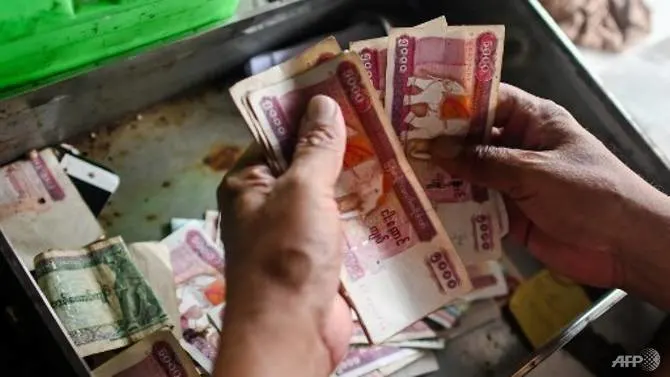What does military guideline mean for foreign investments in Myanmar?
16 February, 2021

It was only ten years ago in 2011 that Myanmar started democratic reforms and opened its doorways to foreign investment.
Industries such as essential oil exploration, retail and low cost, telecommunications, and insurance and banking experience since been opened up.
Aung San Suu Kyi’s landslide victory in the 2015 elections even more cemented the country’s route towards democracy.
Foreign investors piled on.
World Bank data shows that foreign direct purchase inflows jumped to a higher of 6 % of gross domestic product (GDP) in 2015.
Foreign direct investment inflows have since tapered off, hitting a low of just one 1.7 % of GDP in 2018.
Today, with the army back in control, there are concerns foreign trader sentiment will need another hit.
Htwe Htwe Thein, a co-employee Professor of foreign business at Curtin University, said the coup may be the “most significant nightmare” for investors.
“Businesses want stability and certainty. Right now, anything can occur, so self-confidence is low. These events prove that Myanmar continues to be a dangerous foreign expenditure destination.”
The manufacturing sector could visit a fallout.
Regarding to Assoc Prof Htwe Htwe Thein, “Made in Myanmar” could find fewer buyers.
Big infrastructure assignments such as professional zones and special monetary zones are also apt to be damaged. China and Japan will be the biggest buyers in these developments.
Kirin Holdings was first the first Japanese company to speak out against the army coup. It has released it'll terminate its two joint ventures in Myanmar.
But China is Myanmar’s greatest trading partner, and observers believe the Chinese will seek out to deepen their foothold in Myanmar.
“China wants to be considered a more substantial person regionally, and it wants great close relationships, productive interactions using its direct neighbours, which Myanmar is 1. So, there's no impression that Myanmar would fall off the map of interest for policymakers in China," said Mr Andrew Delios, Professor of strategy and insurance policy at NUS Business School.
"In fact, it could even be prioritised as a major policy initiative, particularly as it connects to China growing its Belt and Street initiative and connecting through these parts of Asia to other areas of the environment,” he added.
Mr Jason Yek, senior nation risk analyst at Fitch Solutions, said believes that the Chinese government and Chinese companies it's still able to force through with their assignments, even under military rule and in today's state of emergency - but with a caveat that the speed of progress could possibly be slightly slower.
Regarding to Myanmar’s Directorate of Purchase and Company Administration, China possesses invested a total of US$21.5 billion so far, so that it is the second-largest investor in Myanmar.
Singapore remains the major investor in the united states, with US$24.1 billion in approved foreign capital.
Singapore and Chinese investments only account for over fifty percent (52 %) of most approved foreign capital into Myanmar.
The country, seen as the previous frontier industry of Asia, isn't for the faint-hearted.
The threat of military coups will always be present; this is Myanmar’s third coup since 1962.
However the last time there is a coup, Myanmar had not been a member of the Association of Southeast Asian Nations.
Mr Yek from Fitch Alternatives believes the influence will be contained.
“We check out quite minimal spillover impacts found in the grand scheme of issues which is largely due to Myanmar’s low exterior integration. The country only emerged from military guideline in 2011, so from an trader country's perspective, foreign direct purchase into Myanmar generally constitutes a very very tiny proportion of the total outward FDI.
"That is also similar found in trade, as Myanmar is not a large trade partner from the perspective of the various other countries, even for Thailand, which is a sizable trading spouse for Myanmar.”
Myanmar-watchers note that the country is known for having an extremely difficult business environment to start with. That, they explained, is ultimately about powerful governance, coup or no coup.
“The idea of having a armed service government, and at the same time, seeing rapid economical development, both of these things aren't really inimical to one another," said Mr Michael Witt, Professor of strategy and international business at INSEAD.
"The type of governance per se isn't the problem. What you see here is an authoritarian government, (but) with the proper policies, actually this may be very very good for monetary growth,” he added.
A good convoy of army vehicles patrol the roads of Mandalay, Myanmar, on Feb 3, 2021. (AP Photo)
Businesses deal with other structural problems too.
Mr Bryan Tse, region analyst for Asia at the Economist Cleverness Unit, said that Myanmar has faced various complaints about its slow tempo of reform, in particular when it comes to checking key sectors and bettering its bureaucracy and regulatory regime.
"These are the things that don’t really have a lot to do with the military. Somewhat, it has more regarding the actual fact that Myanmar lacks a competent bureaucracy, it lacks skills and in addition it lacks the amount of money had a need to implement these changes efficiently," he said.
In the long run, as the united states transitions from a decade of civilian guideline, back to military guideline, there stay many questions over the way the political and organization environment will pan out.
Source:
TAG(s):
